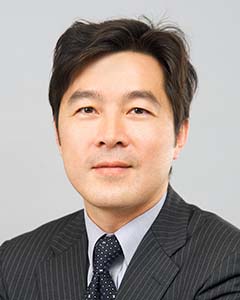At first blush, the mechanisms in place for dispute resolution in Taiwan – including arbitration, mediation and litigation – are not so different from those in place in other civil law jurisdictions. However, some practices in Taiwan do deviate, so local nuances should be noted and considered. To aid newcomers to doing business in or with Taiwan, this article highlights a number of important issues to keep in mind, and perhaps address contractually beforehand.

Partner
Tel: +886 2 2326 5123
Email: shilin.huang@klgates.com
NY Convention-friendly
Taiwan is not a contracting party to the New York Convention, although it is considered to be a New York Convention-friendly jurisdiction. That means Taiwan courts recognise and enforce arbitral awards issued by arbitral tribunals seated in New York Convention jurisdictions. However, it remains uncertain which jurisdictions will enforce an award issued by an arbitral tribunal seated in Taiwan.
In terms of domestic arbitration institutions, there are at least three in Taiwan. Among them, the Chinese Arbitration Association (CAA) is generally best known for administering cases involving non-Taiwanese parties.
Litigation-influenced
Arbitration proceedings in Taiwan often mirror the court proceedings. However, the CAA is pushing for a number of innovative procedures to be adopted in Taiwan-seated arbitrations, such as completely adopting the UN Commission on International Trade Law (UNCITRAL) Model Law on International Commercial Arbitration, which aims to harmonise national arbitration laws around the world.
Arbitration features
Among local practices, involved foreign parties should take note of the following, which are distinct to Taiwan arbitration proceedings:
Nine-month limitation. Unless parties provide written consent, arbitration proceedings must conclude within nine months. This period includes the statutory provision of six months for arbitral proceedings and an additional three months extension that a tribunal may grant at their discretion. This discretion can be exercised on its own motion, or at the request of the parties. The time limitation begins to toll as soon as the arbitral tribunal is fully constituted. Consent to going beyond nine months may be given before or during the proceedings, however, in practice, it is often only given after the arbitration has commenced. In cases where consent is not given, the arbitral tribunal’s mandate will expire after the nine months has elapsed. The dispute will then be referred to the courts for final resolution, as required by law. If the dispute involves complexities, this nine-month period will often be insufficient. If possible, it is advisable to provide such consent via the arbitration agreement.
No case management meeting and no procedural timetable planned. Arbitral tribunals do not often hold case management meetings to agree on terms of reference or the issues in dispute, nor to issue procedural timetables or terms of reference. As a result, it is not uncommon for counsel to raise additional issues that deviate from those raised in initial pleadings. This practice may find parties dealing with new issues just days before the hearing. To better ensure proceedings will be streamlined and issues in dispute identified early in the proceedings or not expanding at a later stage, parties should consider including provisions in their arbitration agreements that require the tribunal to hold a case management meeting and issue a procedural timetable soon after being constituted.
Party-appointed experts and cross-examination are not preferred. Similar to court proceedings in Taiwan, many arbitral tribunals prefer to appoint expert witnesses directly rather than allowing parties to appoint their own. This practice eliminates contradictory expert opinions from being introduced during proceedings. It can reduce the amount of time needed to draft pleading documents, and to prepare for and conduct hearings, as it eliminates the need for counsel to prepare expert witness statements, reports or testimony, or prepare challenges to the opinions of the other parties’ experts via cross-examination, etc. To ensure the independence of the tribunal-appointed expert opinion, it is advisable to request conflict-of-interest disclosures before the appointment, as many scholars who are often favoured by tribunals as experts are also the owners of projects funded by the private sector.
Heavily influenced by traditional Chinese culture, dispute and confrontation is viewed negatively and considered peace-breaking behaviour in Taiwan. Therefore, judges and arbitrators often try to mediate disputes at different stages of proceedings. Government agencies often set up mechanisms at different levels to mediate different types of matters, to resolve, for instance, employment disputes or government procurement disputes.
Most mediations are conducted using community mediation models. Therefore, it is suggested that parties indicate in their dispute resolution clauses that mediation be conducted by specific rules. There is no unified code to govern mediation proceedings in Taiwan, and communications in mediation proceedings are not considered privileged or confidential. Some results of mediation proceedings can be enforced, after court approval, but not all.
There is no track record of complicated commercial disputes reaching a settlement through mediation proceedings unless the parties are sophisticated and engage professional mediators to conduct the process.
Japan & Germany’s influence
The judicial system in Taiwan has been heavily influenced by Japan and Germany’s legal systems and jurisprudence. It is popular for law scholars to study and obtain doctorate degrees in Japan or Germany before becoming law school professors in Taiwan.
Both procedural and substantive laws in Taiwan adopt the wording and rationale of Japanese and German laws, although the government is gradually trying to adopt influences from the jury system and let some civilians join the tribunal to play a fact-finder role.
Court system
Taiwan’s court system is divided into criminal, civil and administrative courts. The criminal court and civil court share the same courthouse. For administrative legal disputes or disputes against the government, there are three levels of courts. Like many other jurisdictions, judges in Taiwan operate under the presumption that government agencies act in the public’s interest.
Non-Taiwanese parties might be surprised to learn how easily they may be implicated in criminal proceedings. In the author’s experience, criminal cases have been brought against non-Taiwanese actors for activities ranging from the less obvious (such as car accidents) to the unexpected (such as a fund manager being charged with violating Taiwan’s Security Exchange Act for engaging in a high volume of trading), to the blatantly obvious (illegal drug transportation).
Role of precedent
As an adherent of the civil law tradition, there is no formal binding authority to judicial decisions in subsequent cases handled by the same court, or its inferior courts. Thus, the doctrine of stare decisis (standing by precedent) is not followed. However, similar to other civil law jurisdictions, precedent does have a de facto binding force.
The judiciary
Similar to Japan, judges have different qualification paths than lawyers or private practitioners. Unlike common law jurisdictions, where most judges are distinguished practitioners of law before being appointed, Taiwan has a career judiciary. Law graduates may enter the judiciary while they are in their twenties and work their way up to the Supreme Court. Lateral entry into the judiciary at any level is rare.
The judiciary is an exclusive group with a uniform background of practical training and work experience. Most members are recent graduates from law departments who have passed the annual special examination for judicial officials. To become a judge, you must pass a national judicial examination and complete a training programme, which includes interning in different courts.
Huang Shilin is a partner at K&L Gates. You can contact him at +886 2 2326 5123 and shilin.huang@klgates.com

K&L Gates
30/F, 95 Dun Hua S. Road, Sec. 2
Taipei, 106, Taiwan
Contact details:
Tel: +886.2.2326.5188
Email: david.tang@klgates.com




























